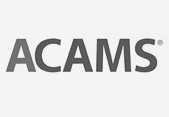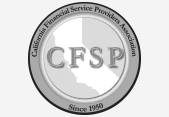The Consumer Financial Protection Bureau (CFPB) conducted a hearing Tuesday, June 2, 2016 to discuss small-dollar lending in Kansas City, MO.
Richard Cordray, Director of CFPB kicked the hearing off with their newly proposed rules that, if put into effect, will certainly change the canvas of the industry.
Cordray, went on to explain that the industry, as we know it today, is broken and the consumers are suffering because of it. “Today we are here to show everyone concerned our proposed new rule on payday loans, auto title loans, and certain high-cost installment and open-end loans. In such markets, where lenders can succeed by setting up borrowers to fail, something needs to change.”
The proposed changes affect short-term loans, long-term loans and extracting payments from consumers.
SHORT-TERM LOANS
Full-Payment Test
A “full-payment” test is required to determine that consumers have the ability to repay the loan without reborrowing.
The test consists of verifying the borrower’s income, their borrowing history, and certain key obligations. Ultimately, making sure that the consumer can afford to pay the full amount of the payment when it is due, without needing to reborrow.
Principal Payoff Option
A borrower can get up to $500 without passing the full-payment test, but only if the loan is structured to keep the consumer from getting into a debt trap.
If the borrower cannot pay the original debt in 30 days, the lender may only offer 2 extensions to the original loan. Then the consumer will repay at 1/3 of the principal with each extension.
Borrowers are not eligible for this option if they have had an existing short-term loan from the preceding year that lasted 90 days or more.
LONG-TERM LOANS
Lenders may issue long-term loans without a full-payment test if they meet specific conditions designed to pose less risk to consumers and provide access to responsible credit.
Payday Alternative (PAL) Loans
Interest rates are capped at 28% and the application fee is no more than $20.
These loans would have to meet three main conditions:
- Must be for a term no more than 2 years and can be repaid in roughly equal payments.
- The total cost cannot exceed an all-in percentage rate of 36%, plus a reasonable origination fee.
- The projected annual default rate on all of these loans must not exceed 5%.
The lender would have to refund all of the origination fees paid by all borrowers in any year where the annual default rate of 5% is exceeded. Lenders would also be limited as to how many such loans they could make to a consumer each year.
EXTRACTING PAYMENTS
Lenders would have to give borrowers advance notice before taking money out of their account.
Debit Attempt Cutoff
After two straight unsuccessful attempts, the lender may not make further debits on the account without contacting the borrower to get a new and specific authorization.
The proposed rules above are not yet final. Rather, the hearing and the notice-and-comments are part of the rulemaking process. When the CFPB finalizes the rules, it is likely they will go into effect Q4 of 2017.
Tags: CFBP, Financial Services, Money Service Business, MSB










